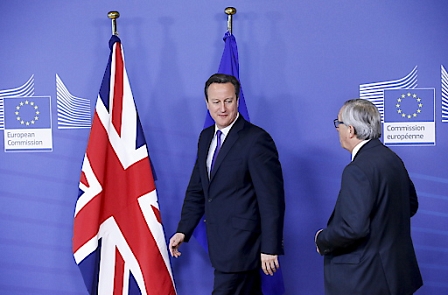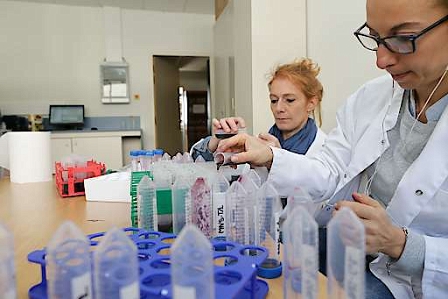Erstellt am: 25. 11. 2015 - 17:20 Uhr
The Scientific Formula for Keeping Britain in the EU
Scientists, as they like to tell us, are very careful people. They do not like to rush to judgements, and as soon as they see a consensus, their first job is to try and shoot it down. But as most political figures and business leaders in the UK are still tiptoeing around the edge of the EU membership question, thinking through the best method of campaigning, prominent UK scientists have jumped straight to a conclusion: Britain must remain in the EU.
To that end, they have set up the campaign group Scientists For EU, with the aim of using it as a platform to inform the population about the EU’s advantages. Looking into it, there’s an awful lot on the line for UK scientists when it comes to EU membership. There are a great number of European-wide funds and projects that allow scientists to complete more in-depth and wide-reaching research, such as Horizon 2020. As much as it sounds like a terrible disco in Ibiza, it is actually the kind of club that you don’t want to lose your membership card to.

EPA/Olivier Hoslet
The EU is a pretty tough bouncer, and it’ll throw you out the second you do something it doesn’t like. Switzerland did. After a referendum to limit the freedom of movement into the country was passed in February 2014, its status in the Horizon 2020 project was downgraded from associated to third country, meaning it could no longer access any of the roughly 80 billion € that are available in funding. It also had to quickly negotiate individual deals with foreign universities to allow their students to stay abroad after its access to the Erasmus+ programme was cut. The cuts have affected the quality of the research at Swiss universities, and given that UK universities benefit the most from Horizon 2020, it’s no wonder that scientists are worried the same would happen in the UK.
Yet what about other European countries? Given that the UK takes more from the Horizon 2020 honeypot than it contributes, surely other EU members would be happy to see them go. Would it not mean more money and chances to lead large scientific projects for other European projects? “That is in fact the case,” was the reply from Scientists For EU campaigner Claire Skentelbery when I asked her. It struck me as being incredibly straightforward, until I remember that she doesn’t have to convince anyone on the continent that Britain should stay.
Maybe that’s a line they might prepare against anti-EU campaigners: if you vote to leave, you’ll be handing more money to European countries. It would be Farage’s nightmare.

AFP/Thibaud Moritz
However, before we start willing the EU to kick the UK out of Horizon 2020 right now, Skentelbery had some words of caution about the effect a so-called Brexit would have on European students and researchers. She highlights the likely rise in tuition costs in the UK, the necessity for student and work visas making life harder, and a lack of access to UK research data, which right now plays an important role in European-wide studies.
It’s largely no wonder that British scientists are desperate to find the formula for keeping the UK in the EU. European counterparts should be worried too. The cost of losing out on membership to European research funding might be even more annoying and costly than losing a gym membership card, and in much the same way, could leave the health of UK research a lot worse off. That’s a discovery nobody wants to make.


